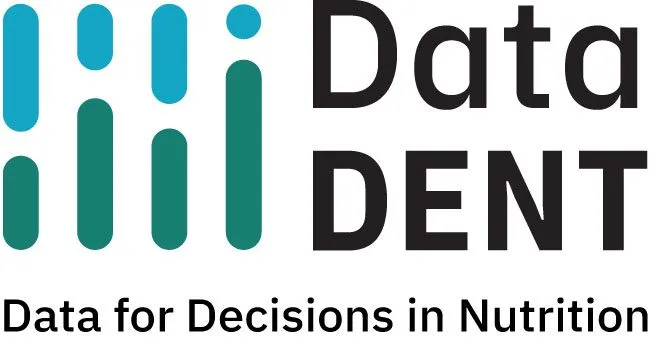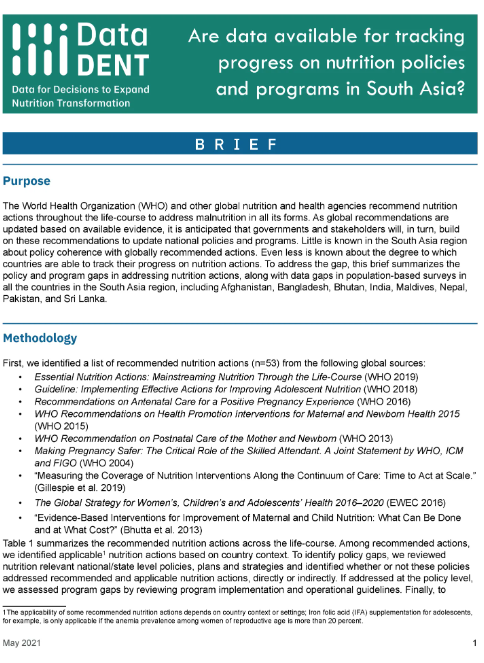Landscaping of Policy and Program Actions for Nutrition in South Asia (July 2021)
Are data available for tracking progress on nutrition policies and programs in South Asia?
The World Health Organization (WHO) and other global nutrition and health agencies recommend nutrition actions throughout the life-course to address malnutrition in all its forms. As global recommendations are updated based on available evidence, it is anticipated that governments and stakeholders will, in turn, build on these recommendations to update national policies and programs. Little is known in the South Asia region about policy coherence with globally recommended actions. Even less is known about the degree to which countries are able to track their progress on nutrition actions. To address the gap, a regional brief and accompanying country reports summarize the policy and program gaps in addressing nutrition actions, along with data gaps in population-based surveys in all the countries in the South Asia region, including Afghanistan, Bangladesh, Bhutan, India, Maldives, Nepal, Pakistan, and Sri Lanka.
View a blog post on this work here. Download the regional brief and country reports below.
Regional Brief
Brief | PDF 455KB
Date of Publication | July 2021
The regional brief summarizes the methods and policy and program gaps in addressing nutrition actions and data gaps in population-based surveys in all the countries in the South Asia region—Afghanistan, Bangladesh, Bhutan, India, Maldives Nepal, Pakistan, and Sri Lanka.
Suggested Citation:
Jangid. M., S. Neupane, Z. Murira, S.P. Scott, S.R. Auer, P. Menon. 2021. Are Data Available for Tracking Progress on Nutrition Policies, Programs and Outcomes in South Asia? New Delhi: DataDENT / International Food Policy Research Institute.
Find this brief in the IFPRI repository here.
Country Reports
Click on the tabs below to access reports for each country.
The country reports summarize methods and review findings with two key objectives:
1) To assess the extent to which existing country-level policies and programs a) address the recommended nutrition actions across the life-course; b) recognize both immediate and underlying determinants of nutrition; c) aim to tackle the key relevant nutrition outcomes, and
2) To examine the availability of data to track progress on nutrition actions, determinants, and outcomes in Afghanistan.
Afghanistan Bangladesh Bhutan India Maldives Nepal Pakistan Sri Lanka

